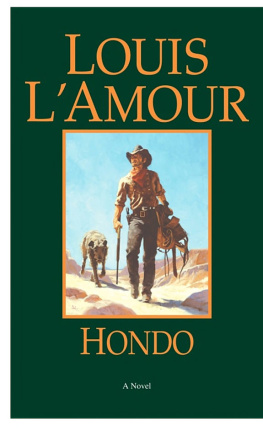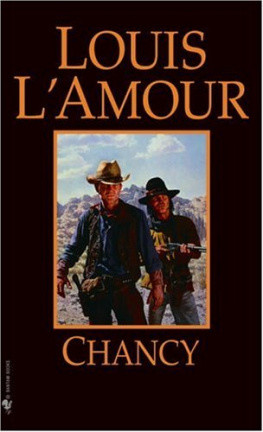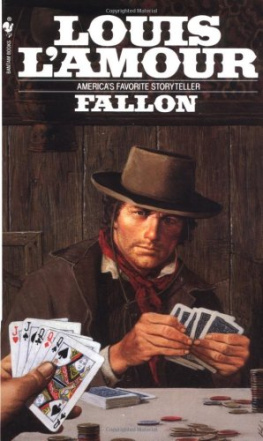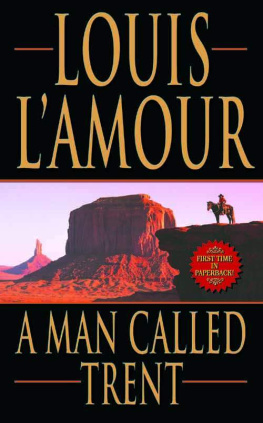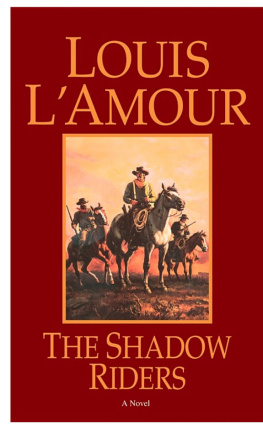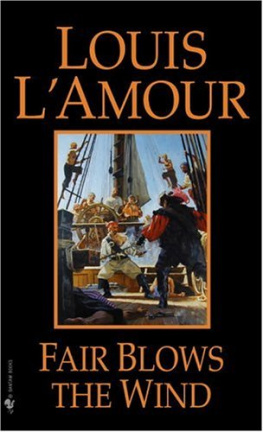Louis LAmour - Bowdrie
Here you can read online Louis LAmour - Bowdrie full text of the book (entire story) in english for free. Download pdf and epub, get meaning, cover and reviews about this ebook. year: 2004, publisher: Bantam, genre: Detective and thriller. Description of the work, (preface) as well as reviews are available. Best literature library LitArk.com created for fans of good reading and offers a wide selection of genres:
Romance novel
Science fiction
Adventure
Detective
Science
History
Home and family
Prose
Art
Politics
Computer
Non-fiction
Religion
Business
Children
Humor
Choose a favorite category and find really read worthwhile books. Enjoy immersion in the world of imagination, feel the emotions of the characters or learn something new for yourself, make an fascinating discovery.

- Book:Bowdrie
- Author:
- Publisher:Bantam
- Genre:
- Year:2004
- Rating:5 / 5
- Favourites:Add to favourites
- Your mark:
- 100
- 1
- 2
- 3
- 4
- 5
Bowdrie: summary, description and annotation
We offer to read an annotation, description, summary or preface (depends on what the author of the book "Bowdrie" wrote himself). If you haven't found the necessary information about the book — write in the comments, we will try to find it.
Bowdrie — read online for free the complete book (whole text) full work
Below is the text of the book, divided by pages. System saving the place of the last page read, allows you to conveniently read the book "Bowdrie" online for free, without having to search again every time where you left off. Put a bookmark, and you can go to the page where you finished reading at any time.
Font size:
Interval:
Bookmark:
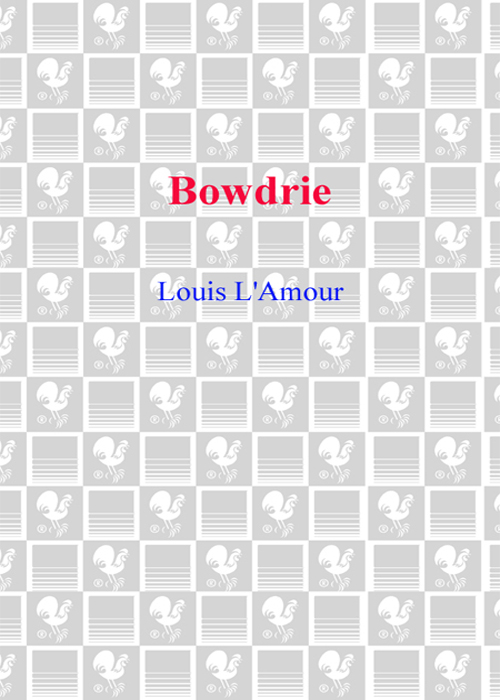
B OWDRIE
Louis LAmour
B A N T A M B O O K S
Contents
Foreword
FOLLOWING THE CIVIL War, conditions in Texas were chaotic. Many communities lived through this period in relative peace and quiet, but elsewhere there were bitter feuds between factions or families, raids over the border, attacks by Comanches and lawless acts by individuals. To keep the peace, Texas reactivated the Rangers, an organization active during and to some extent before the war with Mexico.
The Rangers, working in concert or alone, fought Indians, bandits, horse and cattle thieves, highwaymen, bank robbers, and lawbreakers of every kind. Mostly young, each Ranger was required to furnish his own horse, rifle, and a pair of pistols. There was no Ranger uniform as such. In many cases local officers, if they existed at all, were partisan. In such cases the Ranger had to act with judgment and discrimination, and to use force when and if it became essential.
Basically the Rangers were divided into two groups, the Frontier Battalion under Major John B. Jones, and the Special Force, under the command of Captain L. H. McNelly. This latter group consisted usually of about thirty men, and within a very few years the Rangers became noted for swift and dynamic action, bringing peace to a wide and hitherto lawless area.
Chick Bowdrie, who appears in all of the stories in this collection, is a fictional character, growing up, as did many young men of the time, working hard during his boyhood years, familiar with firearms, horses and cattle, and aware of the possibility of attacks by Indians or outlaws. Comanche raids were frequent, sometimes striking as far east as the Gulf Coast. The skill with weapons that belonged to many such boys and men was the natural result of the necessity of hunting meat for the table, defending the herds against wild animals and simply protecting their homes and themselves.
Boys of twelve and thirteen years old often rode many miles alone on one mission or another, growing up accustomed to doing the work of men and accepting the responsibilities of adults.
The citizens of Texas were of many nationalities. A fact not generally understood is that there were Mexicans defending the Alamo as well as attacking it, and many Texans of Spanish ancestry elected to join in the fight for independence. Colonies from Switzerland, Germany, and France were settled in Texas and in some areas were a major part of the population. It was not at all unusual for children growing up in the vicinities of Castroville, DHanis, or Fredericksburg to have a smattering of German or French as well as their own language, for the children they played with and the men they worked with were often of those nationalities.
These stories were written long ago and appeared first in what were referred to as pulp magazines due to the fact that they were published on paper made from wood pulp.
The magazines referred to as the pulps published a wide variety of stories in many categories such as western, mystery, science fiction, love, air, sports, horror, etc. In their pages a number of American writers learned their trade. Jack London, Sinclair Lewis, Theodore Dreiser, Raymond Chandler, Dashiell Hammett, and many others had stories in pulp magazines under their own names or pseudonyms. It was a valuable training ground, for one had to know how to tell a story, and the story had to move.
Some of these magazines acquired a special status, such as Adventure, Blue Book, Amazing Stories, and Black Mask. Adventure was in many respects a unique case, for the magazine maintained a department in which adventurers could communicate with one another, exchange advice or information, or locate long-lost companions. Often much offbeat historical or anthropological information appeared in those columns. There is nothing quite like it today.
Often it is asked whether I have written anything other than stories of the West. As a matter of fact, I have written detective, mystery, sports, air, and adventure stories. I have never written science fiction but always had it in mind. A number of my first stories were of adventures in what is now Indonesia, stories taking place in Borneo, Celebes, New Guinea, Java, Sumatra, etc. Some of these non-Western stories appear in the book Yondering.
The art of storytelling has always been circumscribed by patterns imposed by various publications and their attempts to appeal to public taste or what they assumed to be so. All of us, in all periods of time, have had to write stories editors thought would appeal to a specific group of readers, and all sorts of nonsense has been written by those who comment on such things.
As I have said elsewhere, we have no idea what Edgar Allan Poe might have written had he lived in any other period. At that time the stories in demand were those of haunted houses, ghosts, the weird and the strange. Many such stories were written of which we have little or no record. Poes have lasted because of their quality. Had he lived in any other time, his stories might have been completely different. He was without doubt one of the most innovative and successful of American editors. His misfortune was to appear at a time when his profession not only did not pay well, but when European writers were preferred.
The profession of literature has many facets, not the least of which is the necessity to make a living.
BOWDRIE RIDES A
COYOTE TRAIL
O NLY A MOMENT before, Chick Bowdrie had been dozing in the saddle, weary from the long miles behind; then a sudden tensing of muscles of the hammerheaded roan brought him out of it.
Pulling the black flat-crowned hat lower over his eyes, he studied the terrain with the eyes of a man who looked that he might live. His legs, sensitive to every reaction of the horse he rode, had warned him. If he needed more, he had only to look at the roans ears, tipped forward now, and the flaring nostrils. Whatever it was, the roan did not like it.
Soft-footing it along the dusty trail, he approached the grove of trees with wary attention. He let his right hand drop back to loosen the thong that held his six-gun in place on the long rides. There was no change in expression on the dark, Apache-like face except that the scar under his right cheekbone seemed to deepen and his eyes grew more intent.
The trail he followed led along the base of a rocky ridge scattered with trees and boulders broken off from the crest of the ridge and toppled down the slope. The strawberry roan, stepping daintily, walked into the trees.
Hold it, boy. He spoke gently as he brought the horse to a stand. A few yards away lay the sprawled figure of a man.
He sat his horse, his eyes sweeping the area with the attention of one who knows he may have to testify in court and would certainly have to file an account of his discovery.
The man beside the trail was dead. No examination was required to demonstrate that. No man could take a bullet where he had taken this one without dying. Also, he was lying on his back with the sun in his eyes.
No tracks showed near the body except those of the dead mans horse, which stood nearby. From the size of the hole in the dead mans chest, the bullet had gone in from behind. Bowdrie turned in the saddle, measuring the distance, and his eyes found a large brush-covered boulder some fifty yards away.
The killer had not taken any chances. Chick still sat his horse. The killer had been smart to take no risks, as the man on the ground was no pilgrim. His was a good-looking face but one showing grim strength and the seasoning of many suns and the winds from long trails. He also wore two guns, and there were not many who did.
Next pageFont size:
Interval:
Bookmark:
Similar books «Bowdrie»
Look at similar books to Bowdrie. We have selected literature similar in name and meaning in the hope of providing readers with more options to find new, interesting, not yet read works.
Discussion, reviews of the book Bowdrie and just readers' own opinions. Leave your comments, write what you think about the work, its meaning or the main characters. Specify what exactly you liked and what you didn't like, and why you think so.

